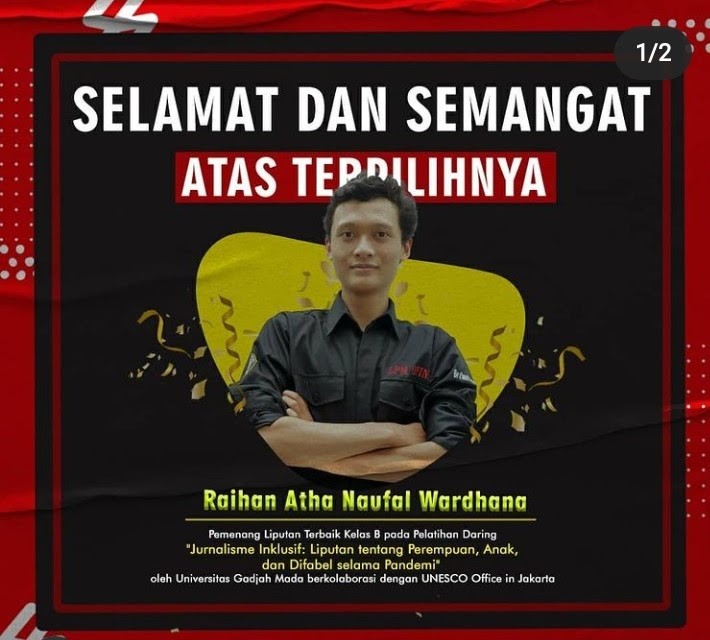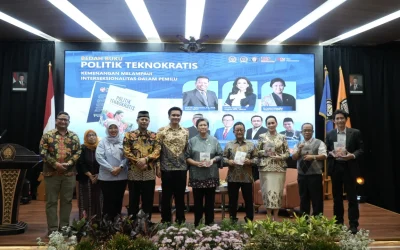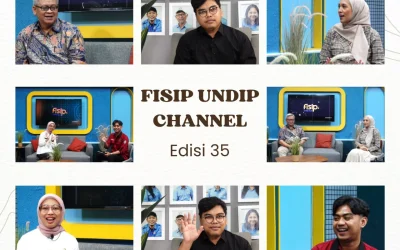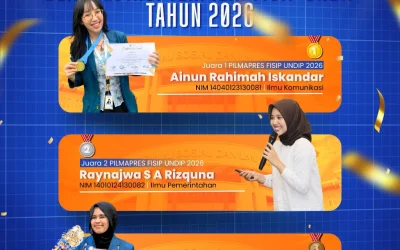Unggahan selebrasi kemenangan Raihan Atha (Gambar: Screenshot Instagram LPM OPINI)
Semarang—Department of Communication Sciences Universitas Gadjah Mada in collaboration with UNESCO Office Jakarta organized an online journalistic training entitled Inclusive Journalism: Reporting on Women, Children, and Diffables during the Pandemic.
Inclusive journalism is journalism that emphasizes more on those whose voices are rarely heard, such as women, children, and people with disabilities. This event exists to provide a training session to people, especially those who are in the field of journalism, to know how to cover news about women, children, and people with disabilities, in a good way.
Taking place from October to November, UGM also invited four Communication Studies students from 15 different universities in Indonesia. On this occasion, four students of the Communication Studies of Universitas Diponegoro had the opportunity to become Undip delegates to take part in the inclusive journalism training.
This training divided the fifteen invited universities into three different classes, namely classes A, B, and C with a total of 20 students per class. Within one month, participants were given two weeks to cover the story, in which the two best reports will be selected per class.
One of the four students who became the delegation from Diponegoro University, Raihan Atha, a 2019 Communication Science student, won the Best Class B Inclusive Journalism Coverage on Women, Children, and Diffables.
His coverage entitled “Pandemic Makes Children Experience Stress Syndrome” was motivated by his younger brother who was stressed in dealing with school assignments.
“The tasks given to him are a bit stressful. That’s why I want to raise children who experience stress when studying online. So we also know that it is not only adults who can be stressed during this pandemic, students can also be stressed,” said Atha.
His busy schedule as a student who took part in various other activities was enough to hinder Atha from working on her coverage, especially when conducting interviews with resource persons.
“The problem is that during this training, I was also doing the Thematic Community Service Program, which also had a lot of tasks. So it’s a bit difficult to find time to interview several sources. But thank God, all the sources are willing to work well together, so this coverage can run smoothly,” he continued.
Through this inclusive journalism training, Atha gained a lot of new knowledge in reporting, especially when a journalist places someone as a subject, not just an object of news.
“If I gain knowledge, maybe I can understand better how to place a person’s figure in our coverage as a subject, not just an object. Because a lot of news, even news that looks good, but puts them as objects,” he explained.
Atha assessed that the knowledge of inclusive journalism coverage is very important for students who are pursuing journalism so that he hopes that inclusive journalism can be shared in regular lectures.
“Because I think the knowledge I have gained is very important, especially for friends who want to pursue journalism. For that, it would be better if this knowledge could be spread as widely as possible, so that there is no more coverage makes someone an object, not a subject of coverage,” he concluded.
Writer: Salsabila Febryanti
Reporter: Dinda Khansa Berlian
Editor: Annisa Qonita Andini





0 Comments